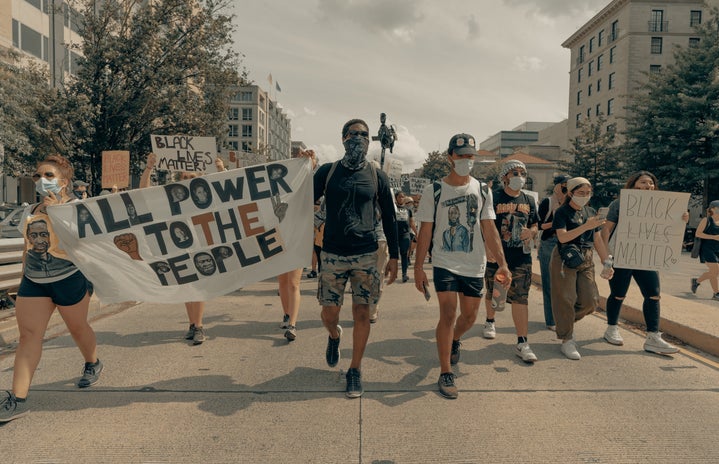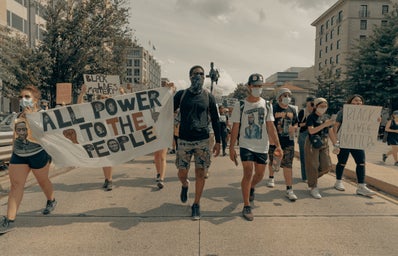Should a person of color be required to speak up for black rights, or do the privileged white have an obligation to also fight on their behalf? Perhaps the latter should bear a heavier responsibility because your privilege indicates how much power you have in society. But if the oppressed don’t speak up, should they then be able to complain when they experience discrimination?
What made me think of this question was one conversation I had in class with a UC Berkeley student. Political science major Adam Ahmad believes politicians have one task: expressing the views of their constituents.
“That is the whole reason why they are elected,” he claimed.
However, even though he recognizes this and the extreme power politicians have, he emphasizes that individuals themselves share the most responsibility to advocate for change.
“If enough people are mobilizing, if enough people are doing it, then change can be made,” he said. “Or at least it will be put at the top of their agendas.”
Ahmad emphasizes the importance of education––not only formal education, but also engagement in conversations, even when they are uncomfortable and even when you disagree with certain opinions, recognizing that not everyone has access to the same information. In Ahmad’s view, if you hear anyone expressing something that could be misinformation about a minority, it is your responsibility to step in.
“If you hear something and let it go by, you are playing a role in that misinformation and you are exacerbating the issue by not speaking up – despite knowing the truth.”
Ahmad believes minorities have to use their time to advocate for human rights, and that this could be anything from an Instagram post to engaging in a conversation about the topic. However, he emphasizes that it would be outrageous for them to do this all the time, and it’s important to understand that not all people are fortunate enough to have the resources to do so.
I wanted to get more educated on this topic so I asked political science major and former politician Hamza Ali the same questions. He tells me about the most prominent barriers minorities face today, citing stereotypes as the biggest ones, while adding that this is visible in all aspects of society.
When I asked him who was responsible for this, he answered:
“It depends on who you are.”
He explains that if you’re in a position of power it is important to recognize this power and use your position to fight discrimination. This is something Adrian Sulemana Bolstad, a Master’s student in religion and society, agrees with.
“Those who want a change should fight for a change. Those in positions of power should acknowledge the people who put them there and help them maintain power.”.
Bolstad believes that solidarity is ideal but ultimately a choice. He states that pressuring people to advocate for something because of their cultural background is highly problematic.
“It is borderline racist,” he said.
He ends by stating that minorities are not a monolith and that there should not be a one-dimensional way of approaching the minority experience.
Ali believes that people with a minority background often have their identity reduced to the color of their skin. He pulls up an example of how politicians, who might want to work with school, industry or energy politics, have to use their time answering for racism, instead of focusing on building their professional knowledge and career.
“These politicians and public figures must be given room to be “black” without having racism as their only field to advocate for,” he stated.
However, he emphasizes that minorities’ attitudes toward racism must otherwise be clear and robust, something that Ahmad agrees with:
“If you want change, you have to be a part of that change”.
On the other side, Ahmad believes that if you’re a minority and you feel discontent with the way things are, but have tried to advocate for change, then your complaints are valid.
However, he adds: “If you have not participated in any way shape or form you have effectively stripped your right of that. It is the same way that people say they hate the presidential administration but then they don’t vote. You don’t have a right, because you exempt yourself from that right, you gave up your right.”
Three different people and three different perspectives. This shows the complexity of this topic and the need for further discussion. However, they seem to all agree that standing in solidarity will always be the ideal.


